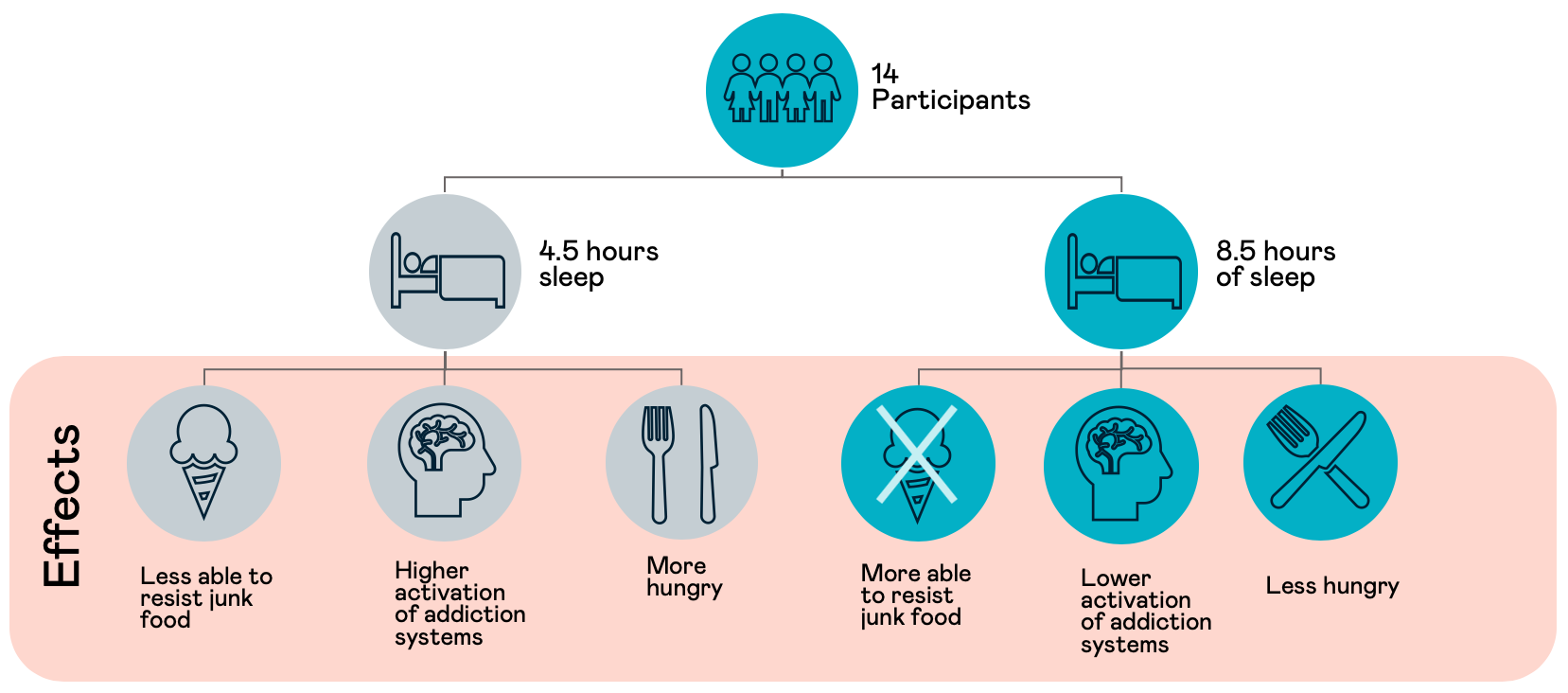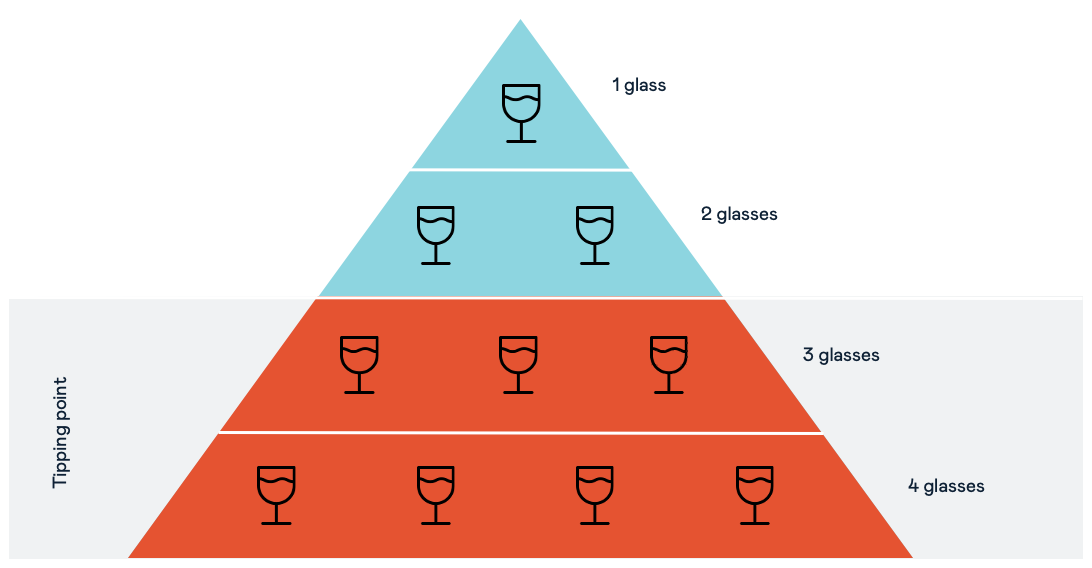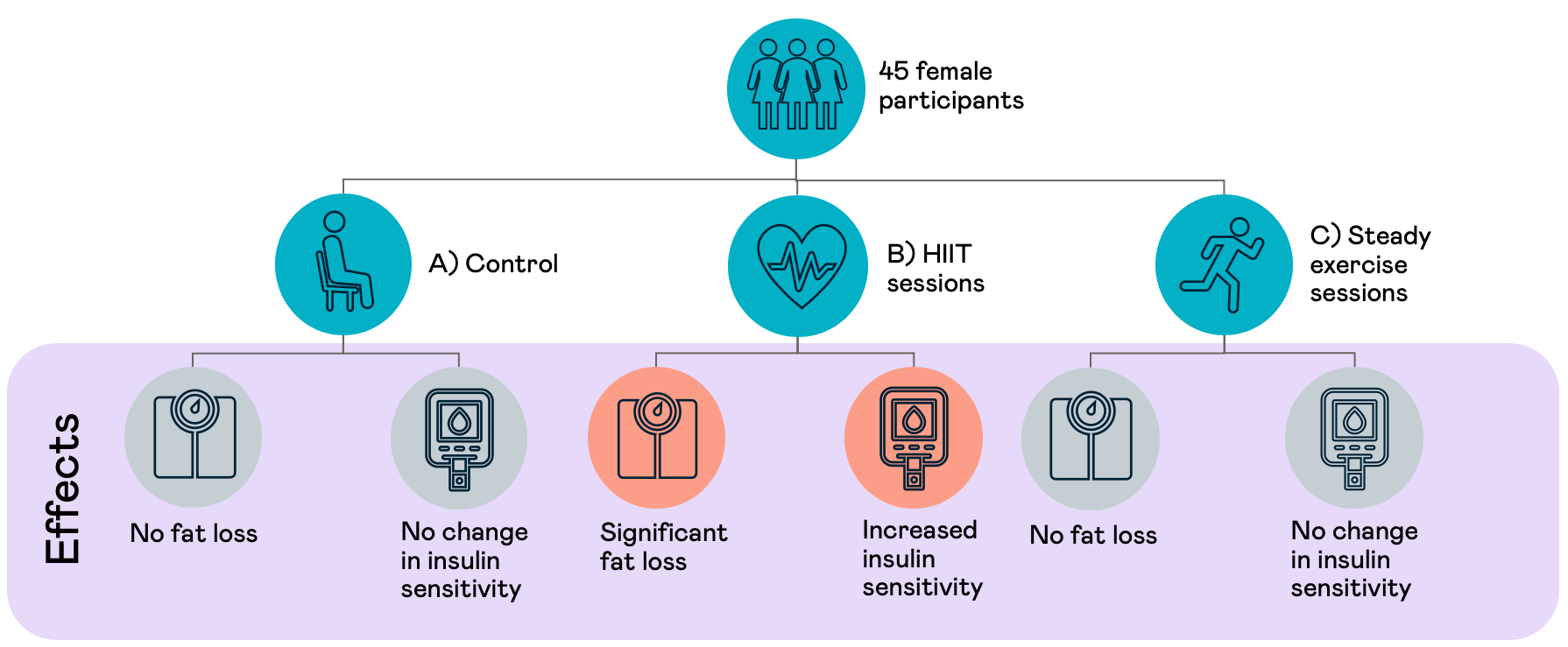The current environment means that the majority of us are in self-isolation at home, due to the coronavirus (COVID-19) outbreak. Understandably, this can lead to worries about gaining weight and struggling to keep up healthy habits.
We recently performed a survey, which included over 1200 participants, to gather further insights into how our lifestyle habits have changed since the coronavirus outbreak. Interestingly, the survey found that over 65% of us think that we might gain weight while being at home for long periods of time, and this bothers us.
Here are our top eight evidence-based tips to manage your weight while at home and build healthy habits.
Medication-assisted weight loss with a future focus
Start with Mounjaro, transition to habit-based health with our support

1) Keep to set meal times
Why?
As we’re all at home for longer periods of time it can be tempting to eat whenever it suits us rather than sticking to three main meals each day. However, sticking to set meal times can be really helpful to prevent us from gaining weight.
It’s much easier to get into the habit of snacking regularly if we aren’t eating three balanced meals. Whether it’s driven by physical hunger or emotional hunger, blurring the lines between meal and snack times can lead to us eating more overall.
On top of this, if we haven’t provided our bodies with a satisfying, balanced meal we’re more likely to overeat on foods that provide a quick boost of energy, which are normally those high in added sugar or refined carbohydrates.
How?
Aim to have breakfast, lunch, and dinner around the same time each day. After a few days of this routine, it will feel more automatic to be eating at roughly the same times each day.
Planning meals ahead of time can make sticking to set meal times much easier. It also prevents last-minute ready meals or takeaways, which are often packed with added sugars and refined carbohydrates.
Try to pick some time before your food shop, such as Sunday morning, to sit down and plan your meals for the coming week. You could write down a plan and stick it on your fridge to remind yourself and your family of the upcoming meals.
Take a look at our diet plan guide for an example 7-day meal plan, and tips on how to create your own meal plan.
Key points:
- Eating three regular meals a day reduces our chances of snacking and overeating
- Planning meals ahead of time can make sticking to set meal times much easier.
2) Focus on good quality sleep
Why?
When we sleep poorly, we have stronger food cravings and less willpower to resist unhealthy snacks.
A recent scientific publication showed that, when people had at least 8.5 hours of sleep, the part of their brain that controls feeding and appetite had a very low level of activation. They were less hungry, had a lower energy intake, and a lower activation of their reward and addiction systems in their brain.
When the scientists reduced the participants’ sleep to 4.5 hours, participants reported increases in hunger and appetite. In addition, they were more likely to choose snacks with 50% more calories than the people with 8.5 hours of sleep.
Finally, the sleep-deprived people were unable to resist what the researchers called ‘highly palatable, rewarding snacks’ (meaning cookies, sweets, and crisps) even though they had consumed a meal that supplied 90% of their daily caloric needs two hours before.

So, sleep deprivation does indeed have a real effect on our desire and cravings for food, increasing your energy intake beyond what is required and increasing your hunger levels.
On top of this, research has shown that sleep deprivation decreases energy expenditure, both directly, by decreasing our metabolic rate, and indirectly, by reducing the amount of physical activity we do the next day.
How?
There are a number of ways we can improve the quality of our sleep. In our guide on how to sleep better we cover seven separate techniques.
These techniques include:
- Limiting screen time before bed
- Reducing our caffeine intake
- Addressing a ‘racing’ mind
- Checking the temperature and ventilation of our bedrooms
- Avoiding alcohol before bedtime
- Supplementing vitamin D
- Ensuring we aren’t deficient in zinc or magnesium
Key points:
- Sleep deprivation increases our cravings, appetite, and energy intake, as well as decreases our physical activity
- There are several techniques we can try to improve the quality of our sleep.
3) Avoid binge drinking
Why?
Regular, excessive alcohol intake can lead to weight gain, both directly and indirectly.
Other than the excess energy that alcohol provides, research suggests that once we reach our ‘tipping point’, our inhibitions are significantly lowered and this results in increased energy intake in the following 48 hours. On top of this, we’re less likely to engage in physical activity, which also, directly and indirectly, affects our weight.

If you have a specific goal of weight loss, reducing binge drinking (roughly 3-4+ alcoholic drinks at one sitting) is one of the most effective steps without making any other changes.
How?
For specific advice around managing alcohol intake whilst in self-isolation, take a look at our guide here.
Here are some more general tips to prevent binge drinking while still mindfully enjoying alcoholic drinks:
- Set yourself a challenge to not drink alcohol during the week
- Try to limit yourself to 1-2 alcoholic drinks at a time
- When you do drink, have it over a relaxing meal with family or housemates, or alone in the garden, rather than mindlessly drinking while distracted in front of your tv or phone
- Really focus on enjoying the drink and the flavour, smell, and texture. This brings awareness to our drinking and we’re far less likely to finish a glass without thinking about it
- Try alternating between sparkling water (or non-alcoholic cocktails!) and alcoholic beverages
- Choose long drinks so the alcohol is less concentrated and the drink lasts longer (e.g. white wine and soda water spritzer or a single gin and tonic in a tall glass).
Key points:
- Regular, excessive alcohol intake can lead to weight gain, both directly and indirectly
- It’s not necessary to eliminate alcohol to lose weight, but reducing binge drinking (3-4+ drinks in one sitting) is one of the most effective steps.
4) Try short bursts of intense exercise
Why?
Research suggests that short, intense bursts of exercise (anaerobic exercise) are more effective for weight loss than less intense, longer periods of exercise, such as running.
One clinical trial compared three groups: A) control group (little exercise), B) HIIT group (3 weekly 20-minute workout sessions of HIIT), and C) steady exercise group (3 weekly 40-minute workout sessions of cardio) over 15 weeks and measured the impact on weight.

They found that both group A) and C) demonstrated no weight loss, whereas the average weight loss in group B) was over 2kg and significantly more than the other groups. Groups B) and C) showed an increase in VO2 max.
A potential explanation for these findings is that HIIT has a positive impact on certain stress hormones released by the kidney that accelerate fat oxidation. This means HIIT might encourage your body to ‘burn’ more fat over regular aerobic exercise. So, any form of exercise can improve your fitness levels and provide mental health benefits but if weight loss is your goal, shorter intense bursts of exercise (like HIIT or resistance training) could be more effective than longer, less intense periods of exercise.
How?
For those of us who prefer to follow instructions, consider trying an online class. Alternatively, we can fit small bursts of intense exercise into our daily routine. It’s a myth that we need to exercise for long periods to see any benefit!
Below are some simple ways to include short bursts of exercise into your daily routine:
Beginner
The moment you wake: star jumps – 1 minute
Mid-morning coffee: wall push-ups (edge of table/kitchen counter/wall) – 1 minute
Lunch break: Squats – 1 minute
Intermediate
The moment you wake: mountain climbers – 1 minute
Mid-morning coffee: push-ups – 1 minute
Lunch break: Squat jumps – 1 minute
Advanced
The moment you wake: crossover mountain climbers – 1 minute
Mid-morning coffee: push-ups with clap – 1 minute
Lunch break: Lunge jumps – 1 minute
Key points:
- Short, intense bursts of exercise (anaerobic exercise) are more effective for weight loss than less intense, longer periods of exercise, such as running
- Fitting in short bursts of exercise into our daily routine can be a simple way to start.
5) Avoid ultra-processed foods
Why?
Ultra-processed foods can promote weight gain, or prevent weight loss, in a number of different ways. Generally, ultra-processed foods are defined as is any industrial formulation of five or more ingredients, such as sweet/savoury packaged snacks (ice cream, crisps, biscuits), ready-meals, cooking sauces, and fizzy drinks.
The food industry engineers foods to taste the best they possibly can with the goal of overriding our internal ‘stop’ signals and encouraging us to buy and eat more.
The way they do this is by carefully combining salt, fat, and sugar in expertly measured amounts to be just right – this is called the ‘bliss point’. At this point, we crave more, even when our bodies are trying to tell us to stop, because we keep experiencing pleasure.
On top of this, these foods increase our preference for those flavours (such as sweet), and we become accustomed to them. This means we’re less likely to enjoy wholefoods or meals we’ve made from scratch because our taste buds are used to being overstimulated.
How?
In order to reduce our intake of ultra-processed foods, it’s important to be able to recognise them in the first instance.
As well as the more obvious foods, like doughnuts, biscuits, and cakes, there are many less obvious processed, bliss point foods. Some examples include:
- Sauces
- Dressings
- Dips
- Soups
- White bread
- Cereal bars
Surprisingly, many of these products can contain that longed-for trio of salt, sugar, and fat that keeps us coming back for more and promote cravings for junk food.
Real food doesn’t need fussy engineering and fancy packaging to taste great. Try experimenting with making your food to replace shop-bought ones with added sugars and salts.
For instance, you can easily make a tomato sauce using chopped tinned tomatoes, herbs, and garlic. You could also try swapping premade dressings for lemon juice, mustard, olive oil, and a sprinkle of salt and pepper. If you’re looking for an alternative to sugary snacks, take a look at our healthy snacks guide for 10 different options.
Key points:
- Ultra-processed foods can promote weight gain by driving us to overeat them and increasing our preference for those flavours
- Swapping shop-bought snacks and goods for homemade, wholefood alternatives can prevent this.
6) Practise mindful eating
Why?
When we’re at home for long periods of time and near the kitchen, it can be tempting to mindlessly snack without paying attention to our bodies’ hunger signals. On top of this, heightened emotions can mean we’re more likely to turn to food as a source of comfort.
Mindful eating is an important tool to help us become more aware of what we’re eating, how much we’re eating, and why we’re eating it. In the long run, this can help with weight loss by controlling our portion sizes and staying in tune with what our body actually needs.
The goal of mindfulness, in general, is to practise paying attention on purpose and non-judgmentally to one single thing, which is the complete opposite of multitasking. In the case of mindful eating, this means turning your full attention to the process of choosing, preparing, and eating your food, whether that be meals, snacks, or drinks.
How?
The first step to mindful eating is to remove distractions at mealtimes. If we’re preoccupied with our surroundings, such as the TV, our mobile phone, driving, or work, it’s difficult to focus on the process of eating entirely.
Ideally, try to eat at a table away from your workspace and minimise other distractions. Eating in the company of others is a great way to spend mealtimes – you might even consider a video chat with friends or family over mealtimes if you’re living alone.
As you’re eating the meal, focus on what each element tastes like in your mouth and savour each bite. Are there certain textures or flavours which pair well together? Try to engage all your senses.
The next step is to take time to eat your meal. Luckily, if we’re at home for long periods of time we probably aren’t in a rush to finish our meal. The ’20, 20, 20′ strategy is a helpful tool to increase mindfulness around food and eating. At each meal:
- Chew your food for 20 seconds
- Put your fork down for 20 seconds between mouthfuls
- Take 20 minutes to eat your meal.
Key points:
- Mindful eating is an important tool to help us become more aware of what we’re eating, how much we’re eating, and why we’re eating it
- Removing distractions, focusing on our senses, and eating slowly can help us to eat mindfully.
7) Practise meditation or deep breathing
Why?
Stress can lead to weight gain in a number of different ways, both directly, such as impacting our food choices, and indirectly, such as disrupting our sleep.
Regular meditation or deep breathing exercises can help us manage our stress, and therefore any weight gain associated with it.
One study demonstrated that a 3-day crash course in meditation reduced the activity in the brain region that processes stress (the amygdala). On top of this, meditation can help us to move past negative stress or anxiety triggers, which may be causing us to overeat.
How?
For those of us who’re new to meditation, a good way to learn is to start by doing 2 minutes of deep breathing each day, alone in a quiet room.
The best way to form a habit like this is to tie it to a ‘trigger’. For example, when we wake up, the first thing we do could be finding a quiet space to practise our breathing or meditation in. Here, the trigger is waking up.
Try practising breathing or meditation every morning when you wake up. For some extra support, there are a number of apps, such as ‘Calm’ and ‘Headspace’, or for free alternatives, ‘Simple Habit’ and ‘Smiling Mind’.
Key points:
- Regular meditation or deep breathing exercises can help us manage our stress, and therefore any weight gain associated with it
- Tying deep breathing or meditation to a trigger in our daily routine helps us develop it as a habit.
8) Join a program
Why?
Evidence suggests that communicating with a coach is one of the most powerful tools to help us change our behaviours. It provides accountability and support to reach our goals and build healthy habits.
Research also suggests that we mirror the behaviour of other people who we engage with. This suggests that if we join a program with like-minded individuals, we can encourage each other to practise healthy habits that impact our weight. For those of us who’re struggling to motivate ourselves, joining a program to gain that extra support can be extremely beneficial.
How?
With being stuck at home, traditional face-to-face slimming clubs aren’t an option. Digital programs offer the convenience of being able to engage with it from our homes, rather than travelling to a meeting or group.
Second Nature is a completely digital habit change and weight management program that gives you daily, online support from a coach. All of our coaches are qualified nutrition specialists*. The entire program takes place within the app with no need for in-person meetups.
When you sign up to the program, you’re provided with a peer support group, made up of other people who’re starting their habit change journey at the same time as you. Many people find the combination of advice from their coach and social support from their peer group extremely motivating. Click the ‘Take our quiz‘ button to take our health quiz and find out more.
Key points:
- Evidence suggests that communicating with a coach and like-minded individuals is incredibly motivating and provides accountability
- Second Nature is a completely digital habit change and weight management program that gives you daily, online support from a qualified coach.
*Second Nature coaches are all UK registered dietitians or nutritionists. This means they have completed university accredited degrees to gain this professional title. However, coaches are not registered in the US, so don’t meet the regulatory requirements to be considered US registered dietitians or nutritionists.


